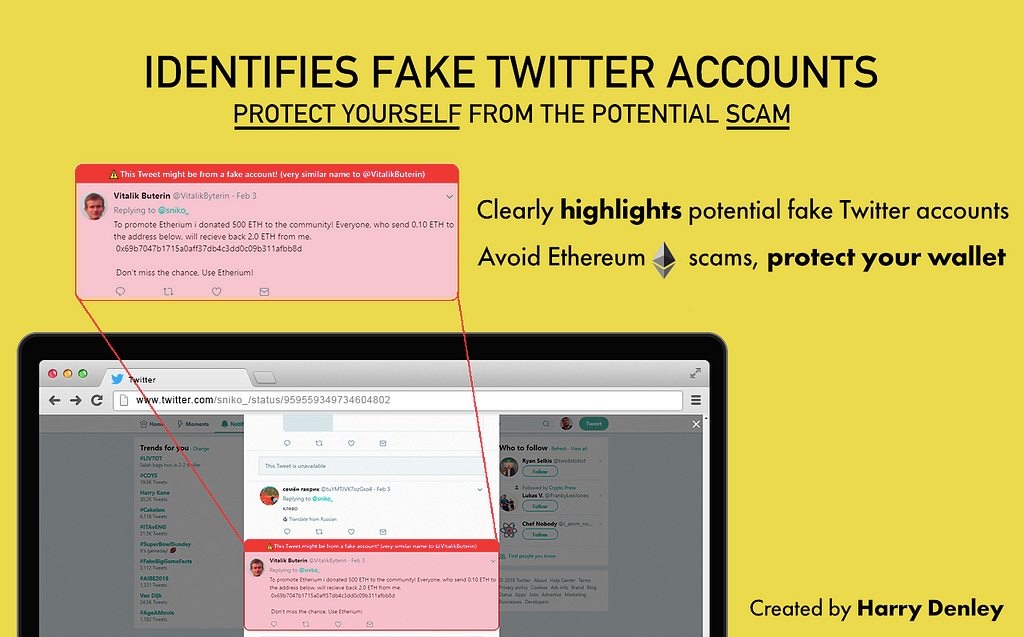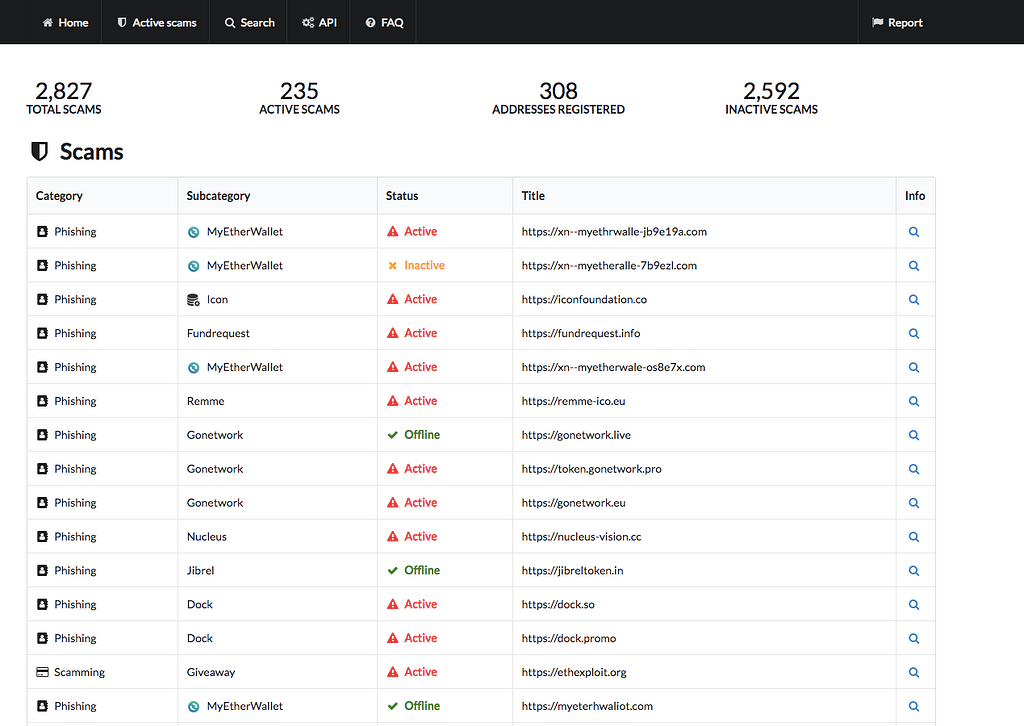Latest news about Bitcoin and all cryptocurrencies. Your daily crypto news habit.
 Simple Filters That Can Protect You
Simple Filters That Can Protect You
When I was eleven or twelve years old (I don’t remember). I was jumping with excitement when I got an email that said “You have won $500”. My euphoria didn’t last long because of a mean friend who yelled “It’s a scam, you idiot”.
After all these years nothing has changed. Things on the internet never die, they just come back in different forms. It’s never been so easy to scam people since we have an innovation that makes them difficult to trace.
Fake ICOs
ICOs allow you to invest in their company in exchange for tokens. I joined a couple of ICO groups on telegram through Earn’s emails. ICO pay to receive your attention. They issue free tokens if you join their telegram group. When I join the group if the first question they ask is “How much are you going to invest?” I blacklist them as a scam. This may not be true but they should talk about their vision and product before asking about my investment.
Before investing ask what problem they are trying to solve. If they confuse you with jargons, run. Query them on google and check if they have content about cryptocurrencies, blockchain, etc. I judge them based on the quality of their content. Scamsters are likely to pay cheap prices and get cheap content or have no content. Remember endorsements of reputable figures can be faked. Vitalik Buterin has been put in the team of an ICO which he has never heard about.
Impersonation
It’s an old trick. Impersonating themselves as someone else. It takes hardly few minutes to open an account on social media. The Founder of Ethereum, Vitalik Buterin is one among the popular Twitter accounts which got impersonated.
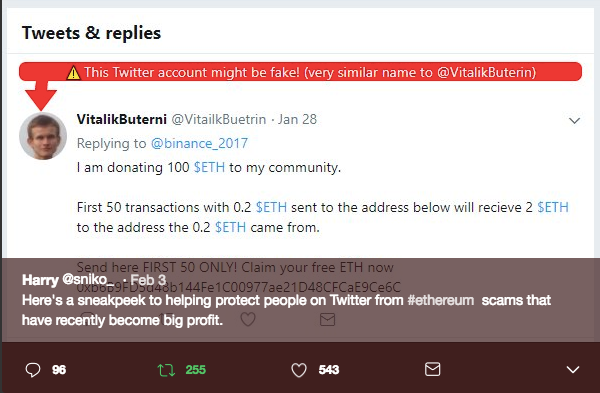 Original Tweet
Original Tweet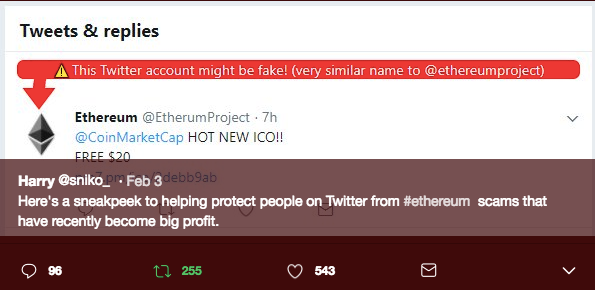 Fake Account of Ethereum Project (Original Tweet)body[data-twttr-rendered="true"] {background-color: transparent;}.twitter-tweet {margin: auto !important;}
Fake Account of Ethereum Project (Original Tweet)body[data-twttr-rendered="true"] {background-color: transparent;}.twitter-tweet {margin: auto !important;}
And another... https://t.co/exgwGvRvrp
— @sniko_
function notifyResize(height) {height = height ? height : document.documentElement.offsetHeight; var resized = false; if (window.donkey && donkey.resize) {donkey.resize(height); resized = true;}if (parent && parent._resizeIframe) {var obj = {iframe: window.frameElement, height: height}; parent._resizeIframe(obj); resized = true;}if (window.location && window.location.hash === "#amp=1" && window.parent && window.parent.postMessage) {window.parent.postMessage({sentinel: "amp", type: "embed-size", height: height}, "*");}if (window.webkit && window.webkit.messageHandlers && window.webkit.messageHandlers.resize) {window.webkit.messageHandlers.resize.postMessage(height); resized = true;}return resized;}twttr.events.bind('rendered', function (event) {notifyResize();}); twttr.events.bind('resize', function (event) {notifyResize();});if (parent && parent._resizeIframe) {var maxWidth = parseInt(window.frameElement.getAttribute("width")); if ( 500 < maxWidth) {window.frameElement.setAttribute("width", "500");}}
Harry has developed a chrome extension to help you. EtherSecurityLookup highlights potential fake accounts.
He also helps maintain Etherscamdb. It has a collection of current Ethereum scams and phishing sites.
Fake Exchanges & Wallet Scams
I haven’t used exchanges intensively. But here are some basic filters. Google them! If it’s a scam people would be talking about it. If the exchange doesn’t have a verification process it could be a scam. I tried to signup for a few reputable exchanges, they take verification process seriously.
I don’t register on any wallets unless it’s listed on ProductHunt. I judge them based on their upvotes. The other thing you can do is find about the team who developed their wallet. Search their Github repositories. If they don’t have good Git reputation they are not likely to keep your coins safe.
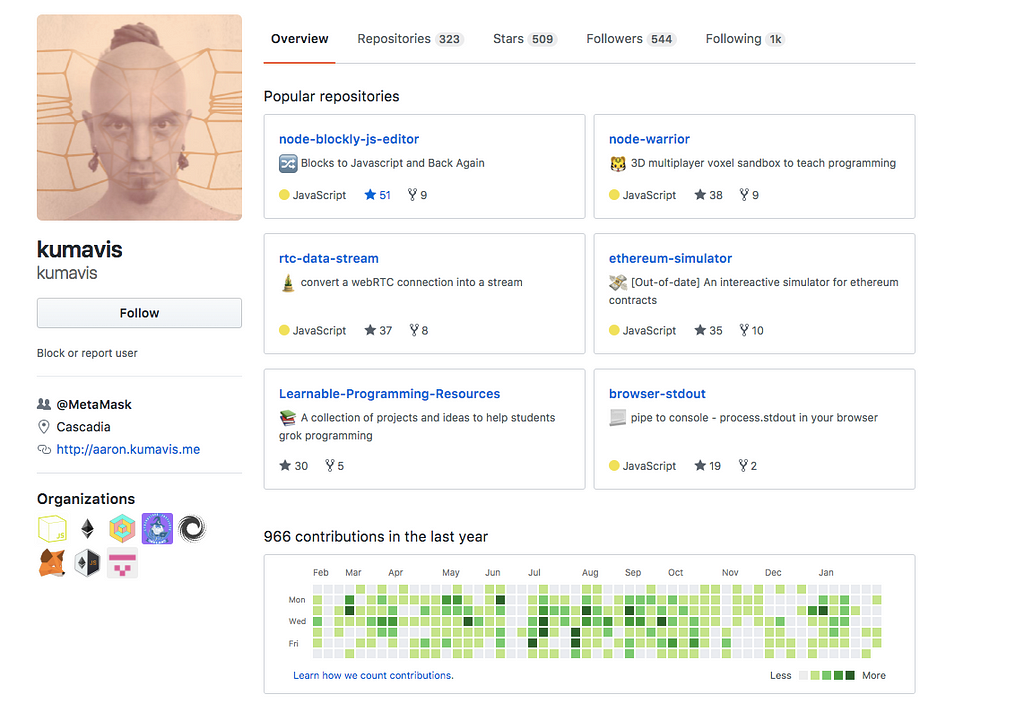 Example of a Reputed Github Profile (MetaMask Team)
Example of a Reputed Github Profile (MetaMask Team)
Claps Please 👏 , Thank You 😊. Follow us, HackerNoon and me (Febin John James) for more stories. I would like to introduce you to few services. Mentorbox summarises popular books and provides actionable insights. Earn pays you bitcoin for reading emails. Coinbase is a digital currency exchange that support Bitcoin, Bitcoin Cash, Ethereum, and Litecoin.
How To Protect Yourself From Cryptocurrency Scams was originally published in Hacker Noon on Medium, where people are continuing the conversation by highlighting and responding to this story.
Disclaimer
The views and opinions expressed in this article are solely those of the authors and do not reflect the views of Bitcoin Insider. Every investment and trading move involves risk - this is especially true for cryptocurrencies given their volatility. We strongly advise our readers to conduct their own research when making a decision.
